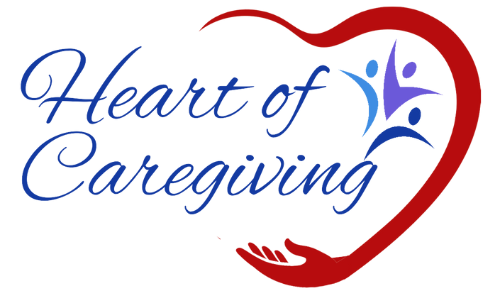National Senior Citizens Day on August 21 is a time dedicated to celebrating and honoring the invaluable contributions of older adults in our communities. While many people recognize the wisdom, experience, and cultural continuity that seniors bring to our lives, one crucial role they often play goes largely unnoticed: their work as unpaid caregivers. This selfless service profoundly impacts the lives of those they care for and plays a significant role in supporting the U.S. healthcare system.
The Role of Seniors as Unpaid Caregivers
As the population ages, more and more seniors find themselves stepping into the role of caregivers, whether for a spouse, a sibling, a friend, or even a grandchild. According to the AARP and the National Alliance for Caregiving (NAC), nearly one in five caregivers in the United States is over the age of 65. These older adults provide essential care to loved ones, often without any formal training, financial compensation, or external support.
Unpaid caregivers are responsible for a wide range of tasks, from helping with daily activities such as bathing, dressing, and meal preparation, to managing complex medical needs like administering medications, coordinating healthcare appointments, and providing emotional support. This caregiving work can be physically, emotionally, and financially taxing, especially for seniors who may already be dealing with their own health issues and the challenges of aging.
The Economic Value of Senior Caregivers
The contribution of senior caregivers is not just a matter of personal sacrifice; it has significant economic implications for the U.S. healthcare system. According to a report by the AARP Public Policy Institute, the economic value of unpaid caregiving provided by all age groups was estimated at $470 billion in 2013. Given that a substantial portion of caregivers are seniors, their contribution represents a significant portion of this staggering figure.
Without these unpaid caregivers, the burden on the formal healthcare system would be overwhelming. The cost of hiring professional caregivers, the increased need for nursing home placements, and the added strain on hospitals and clinics would likely push the already overextended healthcare system to its limits. Senior caregivers provide a buffer that absorbs much of this pressure, allowing the system to function more effectively and efficiently.
The Impact on Caregivers’ Health and Well-being
While the contributions of senior caregivers are invaluable, it’s important to acknowledge the personal cost they often bear. Providing care can be physically demanding, particularly for older adults who may struggle with their own health challenges. The stress and strain of caregiving can lead to burnout, depression, and a decline in their own physical health.
Research indicates that caregivers, especially those who are older, are at increased risk for chronic conditions such as heart disease, diabetes, and arthritis. The emotional toll of caregiving, combined with the physical demands, can exacerbate these conditions, leading to a decline in overall well-being.
Moreover, senior caregivers often experience social isolation, as the demands of caregiving can limit their ability to engage in social activities, maintain friendships, and participate in community life. This isolation can further contribute to mental health challenges, creating a cycle that is difficult to break.
Supporting Senior Caregivers
Given the critical role that senior caregivers play in supporting the healthcare system, it’s essential to provide them with the resources and support they need to continue in their roles without compromising their own health and well-being. Here are a few ways in which we can help:
Access to Respite Care
Providing access to respite care allows senior caregivers to take much-needed breaks. Respite care can be provided through community programs, in-home services, or adult daycare centers, giving caregivers time to rest and recharge.
Financial Support
While many senior caregivers provide care out of love and commitment, financial support can alleviate some burdens. This could include tax credits, stipends, or direct payments to help cover the costs associated with caregiving.
Training and Education
Offering training programs that teach caregiving skills can empower senior caregivers to provide better care while also reducing their stress and anxiety. These programs can cover topics such as medication management, mobility assistance, and recognizing the signs of caregiver burnout. Online resources, community workshops, and support groups can all be valuable tools.
Emotional and Social Support
Senior caregivers need emotional support to manage the stress and isolation that often accompany their roles. Support groups, whether in-person or online, provide a space for caregivers to share their experiences, exchange advice, and find comfort in knowing they are not alone. Encouraging social connections and providing opportunities for caregivers to engage in community activities can help mitigate the feelings of loneliness and isolation.
Healthcare Services
Ensuring that senior caregivers have access to their own healthcare services is critical. Regular check-ups, mental health support, and preventive care can help them stay healthy while fulfilling their caregiving duties. Healthcare providers should be aware of the unique challenges faced by senior caregivers and offer tailored support and resources.
The Long-term Benefits of Supporting Senior Caregivers
Supporting senior caregivers is not just a matter of compassion; it’s an investment in the long-term sustainability of the healthcare system. By providing the necessary resources and support, we can help senior caregivers continue their essential work without sacrificing their own health and well-being. This, in turn, reduces the likelihood of burnout and health crises among caregivers, which would otherwise add strain to the healthcare system.
In addition, when senior caregivers are supported, the quality of care they provide improves, leading to better outcomes for those they care for. This reduces hospital readmissions, delays the need for institutional care, and enhances the overall quality of life for both caregivers and care recipients.
On this National Senior Citizens Day, it’s important to recognize and honor the contributions of senior caregivers. Their selfless dedication not only enriches the lives of those they care for but also plays a vital role in sustaining the healthcare system. As we celebrate the older adults in our communities, let’s also commit to providing them with the support they need to continue their invaluable work, ensuring that they too can enjoy a fulfilling and healthy life.
For solutions for caregivers’ common mistakes, check out 21 Mistakes Caregivers Make & How to Avoid Them: Solutions and Strategies to Reduce Stress and Increase Happiness, available on Amazon! Are you looking for a dynamic speaker on caregiver empowerment? Go to my speaking page, and let’s connect!
The advice offered is for general information only; please consult your healthcare team, legal, or financial advisors for guidance.


